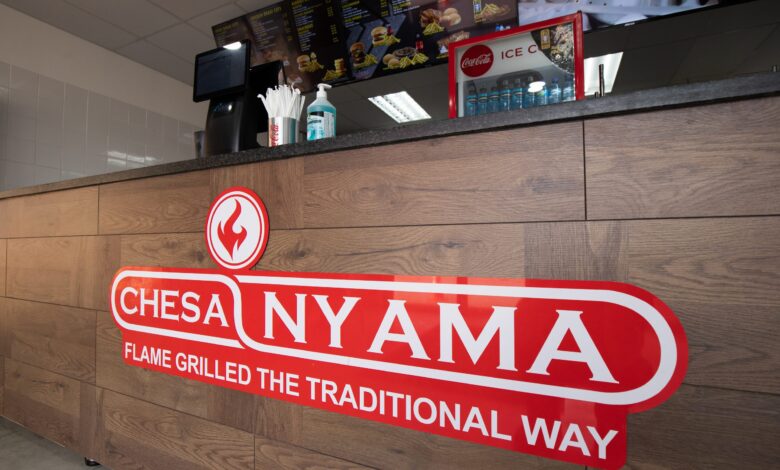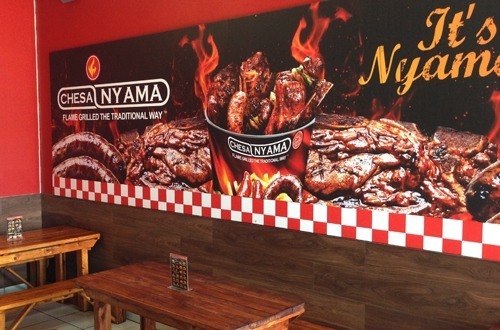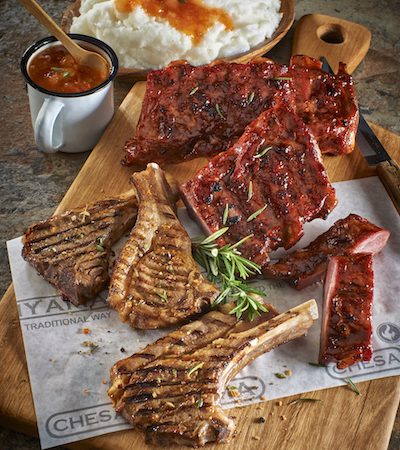Lessons from Chesa Nyama on Franchising in the Township Market

Lessons from Chesa Nyama on Franchising in the Township Market. Chesa Nyama, a proudly South African brand, has made a significant impact on the country’s fast-food landscape. By tapping into the rich tradition of the braai and township culture, the franchise has managed to carve out a unique identity in a highly competitive market. This article explores Chesa Nyama’s journey, its innovative approaches, challenges, and the lessons it offers to aspiring entrepreneurs.
Celebrating South African Culture
Chesa Nyama was established with the goal of celebrating and modernizing the traditional South African braai. By incorporating the vibrant culture of township shisa nyama into its business model, the brand created a welcoming environment for communities to gather and enjoy meals together. This focus on cultural authenticity set it apart from other fast-food franchises, fostering a sense of pride and connection among its customers.

The Franchise-First Approach
One of Chesa Nyama’s key strategies was its franchise-first model. This approach enabled rapid growth, with the brand expanding its presence in townships and urban centers across South Africa. By partnering with local entrepreneurs, Chesa Nyama ensured that its outlets resonated with the communities they served. The model also provided aspiring business owners with an opportunity to enter the fast-food industry under an established brand.
Strategic Location Choices
Focusing on township markets allowed Chesa Nyama to address a gap in the fast-food industry. These areas were often underserved by major brands, creating an opportunity for Chesa Nyama to dominate the space. The decision to prioritize these locations not only contributed to the brand’s growth but also aligned with its mission to bring the traditional braai experience to mainstream markets.
Marketing and Branding
Chesa Nyama’s marketing efforts emphasized its South African roots, appealing to customers’ sense of cultural pride. Its advertising highlighted the joy of sharing meals and the importance of community, resonating deeply with its target audience. While specific taglines and campaigns are not verified, the brand’s overall focus on celebrating local traditions played a crucial role in building its identity.

Challenges in Expansion
Rapid expansion brought its own set of challenges. Maintaining consistent quality and managing operational costs became increasingly difficult as the number of outlets grew. While specific instances are not detailed, such issues are common in franchise models, particularly those undergoing rapid growth. Chesa Nyama’s experience underscores the importance of balancing growth with sustainability.
Lessons in Adaptation
Economic downturns and increased competition posed additional hurdles for Chesa Nyama. These challenges highlighted the need for continuous adaptation and innovation. While detailed accounts of the brand’s responses to these challenges are not readily available, its ability to maintain a significant presence in the market speaks to its resilience and strategic thinking.
Community Engagement
Chesa Nyama’s emphasis on community engagement was a cornerstone of its success. By creating spaces where people could gather and connect over a shared meal, the brand reinforced its position as more than just a fast-food outlet. This focus on fostering community ties remains a valuable lesson for businesses looking to build lasting relationships with their customers.
Key Takeaways for Entrepreneurs
- Leverage Local Culture: Building a brand around cultural authenticity can create a strong emotional connection with customers.
- Franchise Strategically: Partnering with local entrepreneurs can drive growth and ensure community relevance.
- Focus on Sustainability: Rapid expansion should be balanced with measures to maintain quality and operational efficiency.
- Adapt to Challenges: Resilience and adaptability are crucial for navigating economic and competitive pressures.
- Build Community: Creating spaces for connection can foster customer loyalty and enhance brand identity.

Conclusion
Chesa Nyama’s journey offers valuable insights into franchising in the township market. By celebrating South African traditions, leveraging strategic partnerships, and prioritizing community engagement, the brand carved out a unique space in the fast-food industry. For entrepreneurs, the story of Chesa Nyama underscores the importance of cultural authenticity, strategic growth, and resilience in building a successful business.




